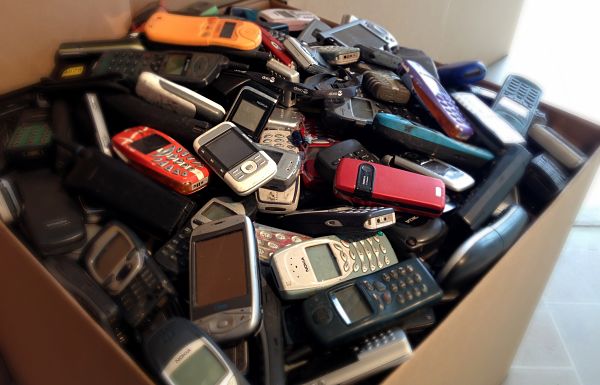By Julian Bajkowski
Unused old mobile phones now officially outnumber human beings in Australia according to the latest data snapshot from product stewardship outfit MobileMuster, with the group likening the giant hidden e-waste stockpile to a retro cool collectibles market national hoarding addiction.
Despite being a nation that relentlessly pursues hardware upgrades, it seems Australians are actually so loathe to let their heritage handsets go that the number of dead devices has exploded to 25.5 million units, a solid 1.5 million more than the current count on Australian Bureau of Statistics’ population clock.
It’s an ignominious achievement that MobileMuster, environmental groups and councils want reversed as soon as possible; not least because of the logistical problems of safely recycling the devices which the proponents say has now reached a “critical mass”.
The sad truth is that a dead mobile, unlike a dead laptop, is just too easy to hide in the botom drawer and then the bin – hence the big wake-up call.
“We want people to start thinking about the environmental benefits of recycling their old mobiles,” said MobileMuster’s Recycling Manager, Spyro Kalos.
“Think of your mobile as a miniature mine, with 95 per cent of the materials and precious minerals from recycled phones being recovered and put back into the supply chain”.
Of course the pressing need to keep highly toxic technowaste out of landfill is the core reason why recycling and product stewardship schemes like MobileMuster even exist.
But there’s another really important consequence of Australia’s recidivist tendency to cling to old phones.
To make e-recycling plants cost effective for councils, industry and taxpayers, the giant processing facilities actually need a relatively consistent throughput of product to stay above water rather than lumpy, dumpy uneven tranches of rubbish.
If there was really big money in recycling technology, someone would be offering you scrap prices for it – and they don’t. Even charity shops refuse this stuff.
So while there’s always an environmental need to recycle electronic hardware, the actual cost is shared between taxpayers and industry with big capital outlays needed to set up.
Read more here.
This story first appeared in Government News.

